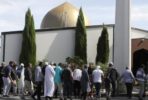SINGAPORE: Malay-Muslim families who receive social assistance from the Islamic Religious Council of Singapore (MUIS) will soon be able to get help under one roof.
Speaking in Parliament on Tuesday, Minister-in-Charge of Muslim Affairs Dr Yaacob Ibrahim said MUIS is working with community self-help group Mendaki and six mosques to launch a new initiative called “Nadi Khidmat” this year.
The aim is to improve accessibility to social services for Malay-Muslim families through the mosques.
In addition, families receiving help from MUIS will also be able to access Mendaki’s educational and employment help in the same place.
Nadi Khidmat officers will also guide families to other national agencies for other forms of help.
On to the topic of social tolerance, Dr Yaacob reiterated the importance of tolerance in the face of diversity.
He warned against “extreme views”, and using labels with “pejorative undertones” to judge those with different views.
He added that the accessibility and spread of misinformation on social media will continue to pose a threat.
MP for Pasir Ris-Punggol GRC Zainal Sapari wanted to know what can be done to encourage a conducive climate for discussions both online and offline.
Dr Yaacob said that ethics and respect are important in any discourse and added that there is a role for community leaders to step forward and to establish norms.
He said: “Looking at the recent experiences, I’m quite happy there are rational voices — especially online — that have stood up against those who have been rabid (and) irrational.
“So we need more of such voices and I hope we can encourage such leaders to step forward to do so… because as far as we are concerned, differences are not the problem.
“How we manage these differences and how we agree to disagree on those differences is really what matters and we can set the right tone. I think that’s the way going forward for our community.”
To help the community strengthen religious knowledge, MUIS will roll out new initiatives to improve the accessibility of religious education, such as expanding the “aLIVE” religious programme — which is specifically catered to students — by 7,000 places by 2015.
MUIS will also work more closely with private players in the religious education sector, particularly in training and accreditation.
“We must remain united as a community that is committed to the principles of meritocracy and multiracialism. These principles have served us well,” said Dr Yaacob.
He added: “Going forward, we must also lend our voices to the discussion of how these principles can serve a Singapore that is facing new and complex challenges.
“We must remain true to our faith. We should guard against divisive forces taking root — to preserve racial and religious harmony within our own community and with other communities too.”
On the issue of the haj, Dr Yaacob said uncertainties remain in the yearly haj quota for Malay-Muslims who wish to undertake their pilgrimage this year.
This is due to massive redevelopment works in Mecca and Medina which have resulted in cuts to the quota to ensure the safety of all pilgrims.
He said Singapore may not receive additional haj places this year.
But authorities here will continue to appeal to their Saudi counterparts to increase Singapore’s official haj quota from 680 to 800 and to seek additional places once the redevelopment works are completed.
Last year, Singapore’s official quota of 680 was initially cut by 20 per cent to 544 places in June, but it was restored late in September.
As for the korban ritual carried out during the haj period, Dr Yaacob said MUIS continues to work with the Agri-Food and Veterinary Authority (AVA) to look for alternative sources of livestock — such as from countries like Canada, France and Ireland.
Australia remains Singapore’s primary source of livestock, but a new regulatory framework set down by the Australian government last year resulted in a reduction in the supply of livestock from the country.
On the issue of rising costs due to importing livestock from non-traditional sources, Dr Yaacob said MUIS “should not be subsidising the costs”.
“While MUIS is mindful to keep fees as affordable as possible, there is a limit because these are driven in part by market forces and the costs ultimately should be borne by those who choose to perform these religious obligations,” he said.
Source: ChannelNewsAsia







